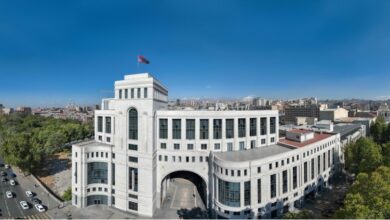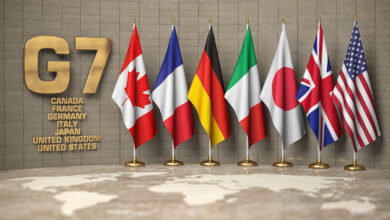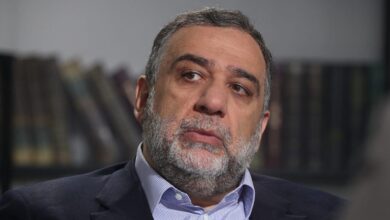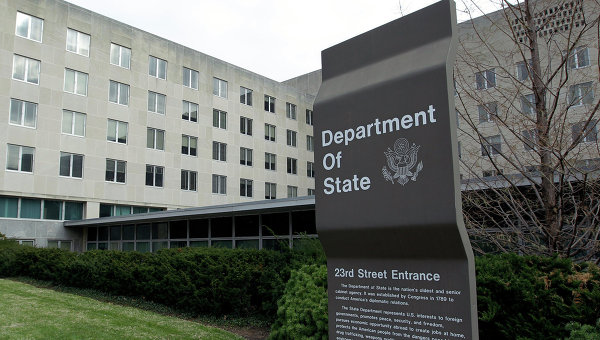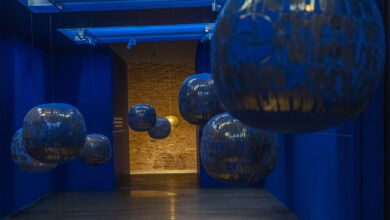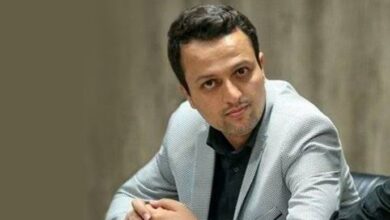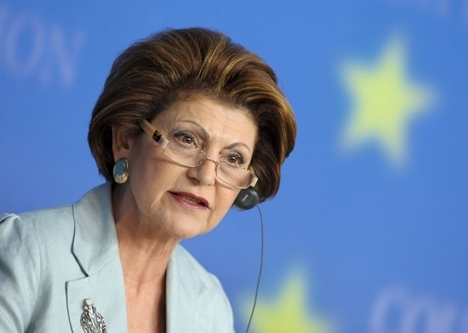
Commissioner for Enlargement and European Neighbourhood Policy Štefan Füle, Commissioner for Education, Culture, Multilingualism and Youth Androulla Vassiliou and Deputy Secretary General of the European External Action Service Helga Schmid will represent the European Union at the third Informal Eastern Partnership Dialogue in Yerevan, Armenia, on 13 September. The meeting brings together Ministers and senior officials from the Eastern Partnership countries (Armenia, Azerbaijan, Belarus, Georgia, Moldova and Ukraine).
Commissioner Füle and Deputy Secretary General Schmid, representing EU High Representative and Commission Vice-President Catherine Ashton, will take part in a session with foreign ministers. In addition to the Eastern Partnership and developments in the region, Deputy Secretary General Schmid will discuss other foreign policy issues of common interest such as Iran, Syria and Egypt. Commissioner Vassiliou will be involved in a separate session with Education Ministers, including Dainius Pavalkis, the Lithuanian Minister of Education and Science, representing the EU Presidency.
The Informal Dialogue meetings will help to prepare for the third Eastern Partnership Summit which takes place in Vilnius 28-29 November. They also reflect the EU’s commitment to advancing the Eastern Partnership and extending sectoral cooperation.
“The informal dialogues are a good opportunity to discuss with our partners the process of political and economic reforms and look at how we can strengthen the cooperation in specific sectors like transport, education etc. The EU remains firmly committed to moving this partnership forward as much as possible, based on the ambitions of our partners and their ability to implement necessary reforms,” Commissioner Füle said before leaving for Yerevan.
Commissioner Vassiliou will highlight the new opportunities which will be created by Erasmus+, the EU’s new programme for education, training, youth and sport, for students from Eastern Partnership countries who aim to spend part of their degree studies at EU universities. The Commission envisages that non-EU partner countries will receive €400 million per year for mobility opportunities and cooperation under the programme. Capacity building projects, presently funded under the Tempus programme, will also receive additional funding from Erasmus+.
“Our existing Tempus and Erasmus Mundus programmes have been great success since their launch in the Eastern Partnership region and I am delighted that we will be able to support even more student exchanges under Erasmus+. Quality education is fundamental to the prosperity and stability of our societies; without well-performing education systems, there can be neither growth nor development,” said Commissioner Vassiliou.
Students from Eastern Partnership countries will also be able to benefit from scholarships for joint Master programmes. Doctoral fellowships will be financed under the renamed Marie Skłodowska Curie Actions, which are part of the new Horizon 2020 programme.


